In January of 2018 Czechs will vote in the second direct presidential election in history. Between 1918 and 2013 the head of state was elected by Parliament. The change to direct presidential elections did not in any way change the powers of the president. As the head of a parliamentary democracy, the role of the Czech president is predominantly representative.
The executive power is in the hands of the government, which is accountable to Parliament. Nevertheless, the Office of the President is traditionally held in high regard and in reality the president’s influence exceeds the powers given to him by the Constitution.
This high respect for the Office of the President dates back to the days of Czechoslovakia’s first president T.G. Masaryk and later marked the presidency of Václav Havel and to some extent also the presidencies of Václav Klaus and Miloš Zeman.
The presidential election is held in two rounds. The first is scheduled January 12-13. If none of the candidates in the running manage to win majority support, a second round is held a fortnight later i.e. on 26-27 January.
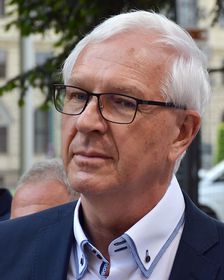 Jiří Drahoš
Jiří Drahoš
Jiří Drahoš is a former head of the Czech Academy of Sciences, and a university professor in the field of chemistry. His distinguished academic demeanour is in striking contrast to the blunt and hard-hitting approach favoured by President Zeman. He was one of the first to announce his candidacy and is considered a hot candidate in the race. He has pledged to cultivate Czech politics. Drahoš is running as an independent candidate and has received support from the Christian Democrats.
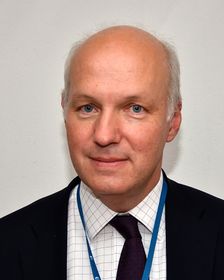 Pavel Fischer
Pavel Fischer
Pavel Fischer is a diplomat and former Czech ambassador to France. He is not a well-known public figure. Fischer favours a pro-Western orientation and deepening ties both within the EU and with the US. He believes the Czech Republic should accept refugees in line with the European Commission’s mandatory quota system.
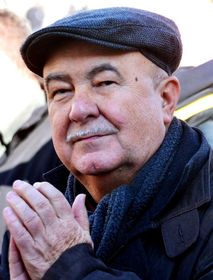 Petr Hannig
Petr Hannig
Petr Hannig is a producer and music composer. He has entered the race in all of the general elections and elections to the Senate held since 2002, without success. He last ran for the Rozumni (Sensible) party, which supports a restrictive policy on migrants.
Marek Hilšer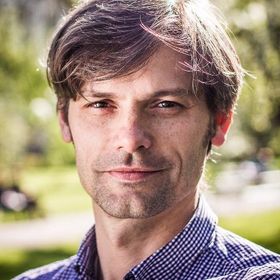 Marek Hilšer is a physician who currently lectures at Charles University. He has also graduated in international relations. His parents emigrated to Spain shortly before the Velvet Revolution and Hilser spent part of his childhood in Madrid. He is not a well-known public figure. Although Hilšer is a brain tumour specialist he is best known for his civic activism, such as when – protesting Russia’s treatment of Ukraine – he and a colleague stripped to the waist and held up NATO and EU flags at the Office of the Government.
Marek Hilšer is a physician who currently lectures at Charles University. He has also graduated in international relations. His parents emigrated to Spain shortly before the Velvet Revolution and Hilser spent part of his childhood in Madrid. He is not a well-known public figure. Although Hilšer is a brain tumour specialist he is best known for his civic activism, such as when – protesting Russia’s treatment of Ukraine – he and a colleague stripped to the waist and held up NATO and EU flags at the Office of the Government.
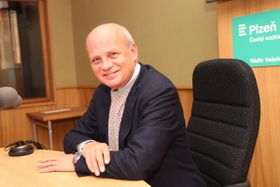 Michal Horáček
Michal Horáček
Michal Horáček is a successful entrepreneur and lyricist, author and journalist. He announced his candidacy in October 2016 as an alternative to Miloš Zeman. He is pro-European and would support the adoption of the euro. However he has come out against acceptance of migrants and the building of mosques in Czech cities.
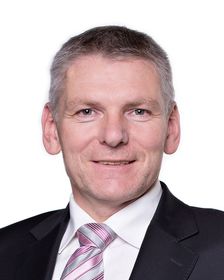 Jiří Hynek
Jiří Hynek
Jiří Hynek is a business manager and Chairman of the Association for Weapons and Defence Industry of the Czech Republic. His priorities in office would be to serve as an ambassador for Czech industry, support the country’s national interests and boost security. He is in favour of reforming the EU and would support a national referendum on whether the Czech Republic should leave the alliance. He is the candidate of the Realists party, which failed to win seats in October’s general elections.
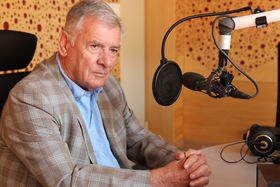 Vratislav Kulhánek
Vratislav Kulhánek
Vratislav Kulhánek is Chairman of the Board of Directors at Skoda Auto. He would support the adoption of the euro, on condition that Greece is expelled from the Eurozone. He is a firm supporter of EU membership and rejects the idea of a national referendum on the issue.
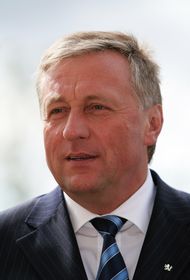 Mirek Topolánek
Mirek Topolánek
Mirek Topolánek is a former prime minister and former leader of the centre-right Civic Democratic Party. He is running as an independent candidate. His forthright demeanour in public address is perhaps closest to that of the incumbent president, Miloš Zeman. He served as prime minister at the time of the Czech Republic’s presidency of the EU. He describes himself as a Euro-realist and highlights the country’s pro-Western orientation.
Miloš Zeman
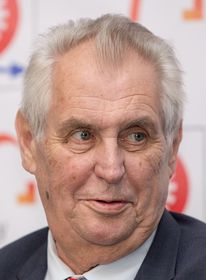 Miloš Zeman is the incumbent president of the Czech Republic. Along with Václav Havel and Václav Klaus, Zeman was one of the leading personalities to emerge after the fall of communism. He formerly headed the Social Democratic Party, but later left its ranks over sharp ideological differences. He is perceived as a politician who divides the society. He entered his first term in office as an advocate of EU membership, but has become increasingly critical of the EU over time. In the course of his presidency he placed great emphasis on economic diplomacy, particularly on the need for closer cooperation with Russia and China. He is opposed to the sanctions against Russia, is fiercely against accepting migrants and frequently makes anti-Islam statements. He is criticized for his tendency to overstep his powers, something that he himself describes as “a creative interpretation of the constitution”.
Miloš Zeman is the incumbent president of the Czech Republic. Along with Václav Havel and Václav Klaus, Zeman was one of the leading personalities to emerge after the fall of communism. He formerly headed the Social Democratic Party, but later left its ranks over sharp ideological differences. He is perceived as a politician who divides the society. He entered his first term in office as an advocate of EU membership, but has become increasingly critical of the EU over time. In the course of his presidency he placed great emphasis on economic diplomacy, particularly on the need for closer cooperation with Russia and China. He is opposed to the sanctions against Russia, is fiercely against accepting migrants and frequently makes anti-Islam statements. He is criticized for his tendency to overstep his powers, something that he himself describes as “a creative interpretation of the constitution”.